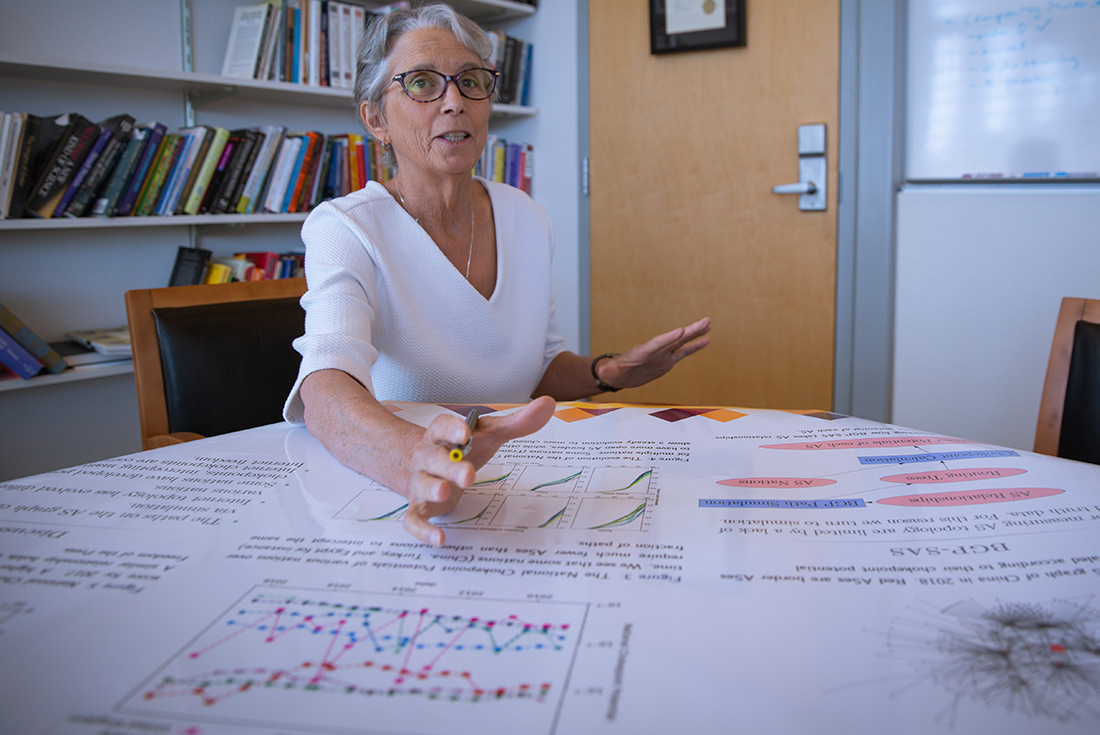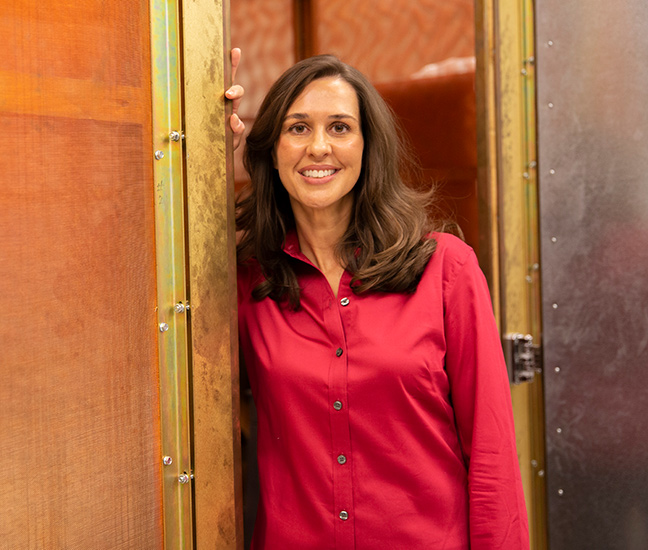Online Exploratory Math, Physical Sciences, Engineering and Technology
Exploratory studies are an excellent way to learn more about topics that interest you before committing to a major. During your experience, you’ll complete general education credits to keep you on track for graduation as you explore your passions. You’ll also gain valuable life and career skills that will help you confidently decide which degree program is your perfect fit. In addition to the math, physical sciences, engineering and technology track, you may also choose:
- Exploratory health and life sciences.
- Exploratory humanities, fine arts and design.
- Exploratory social and behavioral sciences.
As an exploratory studies student, you’ll select a track and take up to 45 credits worth of related courses that explore the topics and skills needed to transition into your future program. You’ll have an academic advisor who can assist you throughout the process and help you hone in on your top choice of majors.
Is the math and science track right for me?
Whether you’re passionate about computers, data, chemistry or discovering new advancements in STEM, the math, physical sciences, engineering and technology track is here for you. In this track, you’ll explore both physical and abstract topics, such as:
- Computer sciences.
- Data analysis and web design.
- Intellectual curiosity and logical reasoning.
- Physical sciences.
- Software development and engineering.
- Theoretical knowledge.
As you continue through your exploratory studies track, you’ll be afforded opportunities to discover a variety of career paths in the math and science industry. Your academic advisor will also discuss your interests with you when helping you declare a major.

Are you interested in technology, data and all things STEM, but aren’t yet sure of which degree to choose? If so, the math, physical sciences, engineering and technology exploratory track is a great option for you. Take courses that allow you to fulfill general education credits while deepening your knowledge and exploring your passions.
Throughout your exploratory studies, you’ll cover a broad range of subject matter, such as software programming and information technology, as well as many topics in math and science. Additionally, you’ll take personalized exploratory courses intended to help you refine your major and career interests. Courses may include:
Our award-winning faculty are accomplished across industries and locations around the world. They include researchers, authors, artists and more. No matter where you study, you’ll take courses from the same faculty who teach on campus. Learn side-by-side with faculty dedicated to your success as you participate in research opportunities and attend virtual office hours.
ASU is a global university recognized for its commitment to innovation, research and high-quality academic programs. Our university has been recognized with peer-reviewed honors from U.S. News & World Report.
in the U.S. for innovation for 11 consecutive years, ahead of Stanford and MIT.
best online bachelor’s programs.
best global universities.
of graduates reported that their experiences at ASU inspired them to explore new career opportunities.
You’re considered a first-year student for application purposes if you’ve never attended college or have fewer than 12 transferable credit hours.
To be admitted to ASU, you must hold a high school diploma or equivalent and have completed at least 14 of the following courses.
- Four years of math.
- Four years of English (non-ESL/ELL courses).
- Three years of lab sciences (One year each from biology, chemistry, earth science, integrated sciences or physics).
- Two years of social sciences (including one year of American history).
- Two years of the same second language.
- One year of fine arts or career and technical education.
Note: You cannot have course deficiencies in both math and lab sciences competencies.
Applicants must meet at least one of the following:
- Top 25% in your high school graduating class.
- 3.00 GPA in competency courses (4.00 = A).
- ACT score of 22 for Arizona residents (24 nonresidents) or SAT Reasoning score of 1120 for Arizona residents (1180 nonresidents).*
*Additional information about ACT / SAT:
- ASU doesn’t require the writing portion of these tests.
- ACT or SAT scores are not required for admission but may be submitted for ASU course placement.
Besides a high school diploma, applicants may also meet undergraduate admission requirements through one of the following:
- GED*
- 50 or above for tests completed before 2002.
- 500 or above for tests completed between 2002 and 2013.
- 170 or above for tests completed after 2013.
- HiSet*
- Total score of 75.
- TASC (Test Assessing Secondary Completion)*
- A minimum total score of 2700.
- A minimum score of 500 on each of the five content areas.
- A score of two or above on the essay.
- California High School Proficiency Examination
- Please contact your enrollment coach at 866-277-6589 if you’ve completed the California High School Proficiency Examination or other high school equivalency diplomas.
*Some higher requirement programs require ACT/SAT scores or additional coursework to satisfy aptitude and/or course competency requirements.
Homeschool applicants must meet all general admission requirements for ASU. You may also need to provide additional documentation after you submit your application. If needed, you'll be notified after we receive your transcript.


















